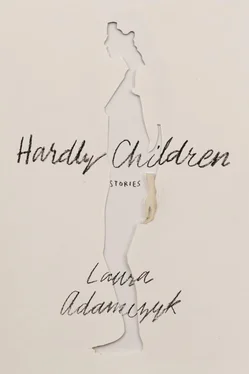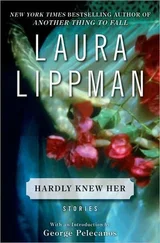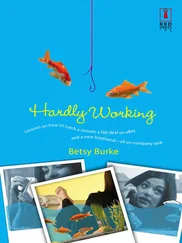This can’t go on, he said. He was looking down. When I think of their families—he stopped, his mind following the thought somewhere the rest of us couldn’t go. He shook his head. The gesture echoed the old man and sweet-and-sour, but he had none of their adult importance, the kind that comes from listening too closely to one’s own voice.
We have to do something , he said, his eyes turned up, large and naive. My face had looked even younger at his age. Adults were forever pitching their voices high to me, but I denied them my childish inclinations, went about my kid business in secret—writing rhymed songs, posing dolls, letting the world silently terrify me. I kept myself hidden, not wanting to conform to any mass noun that might include me.
Nobody ever has to do anything, I said.
Not even now? he asked. Not even now?
He was too confused and pleading, too guileless, that look. Too much a child. The rest of them looked the same, their faces cracked open, baby chicks pecking out into the world and me the hen that had warmed them. I never asked for this, I thought, but, Question, question, question mark, their little faces went.
Well, I mean, it’s nothing for you guys to worry about!
Why not? they asked. Yeah, why not?
You’re such good kids, I thought. This type of thing didn’t happen to such good kids . But I knew it wasn’t any kind of thing to say. I also knew that I shouldn’t describe the way my head was about to roll off the back of my neck, how certain I was of the end of the world happening so very soon that it was like it had already happened. I put my hand on my stomach and winced.
Act three! I groaned, and flew from the room.
* * *
THE WOMAN ON THE BUSwas telling the bus how she had a titanium hip and a titanium knee and a glass eye and an implant inside her ear. She had a pin in her thumb, a stent in her chest, and a wig she’d purchased in this very neighborhood. She had no particular audience, getting all the encouragement she needed from the bus’s silence. I wondered what was the most of a person that could be made of something else. Hooks for hands and wheels for legs, an iron lung, a metal heart. What’s the least amount of human a human could be?
A group of field-tripping daycare children got on at the next stop. Toddling kids no bigger than big dolls, climbing up and in, all holding on to the same red rope.
Sit down, their carewoman called. The bus is about to move!
They scrambled into their seats, legs dangling. The little girl beside me, hair sprouting from her head in a single, round pouf, turned to look out the window, then to me.
Did you tie your shoes all by yourself? she asked.
I nodded.
Oh!
She’s a big girl, her watcher said.
I nodded and smiled, and the girl turned to look out the window again. Her ears were impossibly small, as pliable as gummy candy. Somewhere an adult had gotten pregnant and had said, Okay, yes. Yes, okay, fine. She had planned it or not planned it and had decided to make a little thing that looked like her. The adult had wanted reassurance that she wasn’t so far away from being a child herself. Wanted to make a thing to tell her, We’re not so different, you and me . But what the pregnant adult did not think about was the way the little thing’s face was going to change—from the small, soft version to something hard like burnt cake. The pregnant adult shrank her imagined timeline to include only what I saw now. Who could blame her? I thought about taking the child for myself, taking her by the hand and pointing out the world to her, telling her the names of everything and what I thought any of it meant. I saw myself holding her up in the mirror, she looking into my eyes and saying, Let’s you be me. Let’s me be us. The desire of it was so plain, rising up, bursting out so fast, it was like something I’d spilled all over myself.
I reached over and pinched the toe of her white sneaker, wiggled it, and opened my book in my lap. I liked its weight there. The townspeople had discovered that by channeling their positive energy, they could make the beast change shape, melt, or diminish in power. They just had to have faith. Of all that had come thus far, this seemed the most unbelievable.
* * *
THE NEXT MORNING,the radio told me everything I’d missed. Protesters had gone out into the streets the night before, carrying signs with pictures of the taken. They said, Show us the men who have done this. Bring them to us. But there they were. Policemen hidden in plain sight inside their plastic helmets and shields, telling the men and women assembled that they’d assembled incorrectly, had not filed the correct permits five to ten business days in advance and therefore needed to disperse. The people said that justice could not wait. The people said, Who’s next? A few of them had picked up rocks and put them into the air—dull, impotent thuds against all those plastic shields—and this was reason enough for the men to slide out their thick batons and new crowd-control swords, clearing a path as with a machete through the jungle. They could not quantify it specifically, but there had been significant bloodshed. Bloodshed , the radioman said, making it sound like something no longer needed. Bloodshed , like snakes ridding themselves of their skin. A spokesperson for the hardly children told the reporter that this was not it, not even close to not it, was even more not it than it hadn’t been it before, now with so many new names to add to the signs, and tonight they would meet with the men hidden within uniforms yet again until they got just what they were coming for.
And there were children newly missing, those unaccounted for in the significant bloodshed. Young people from all over the city had come to join the protest and show their support for the taken, only to be taken themselves. They were said to have been snatched from the quieter, more sensitive edges of the protest. I thought of how my fellow teachers called the students their “kids,” as though they were all our sons and daughters, and how I didn’t think of any other children in that way. Only my kids were my kids.
My walk took me past the wooded park, the sun pushing up while mist descended within the trees. A few blocks from downtown I found a shoe on the sidewalk. Just smaller than my hand. White with a silver starburst pulling behind it a glittery rainbow and at the end of its tail a speck of blood. Farther along, a pair of overalls smeared with blood. I thought of the girl on the bus—her edible ears—and it would seem the kind of coincidence that only the most sentimental would create. All along the edge of the park, a breadcrumb trail of jackets and jeans and rags gone red, as always the morning after—the messy evidence of two lovers who shed their clothing before eating the other up.
I let the first bus pass, thinking myself early. Then another and no old man, no sweet or sour. I took the third, and when I got to the school, I found chains cuffing the doors. I put my fist against the glass until the guard came out from behind the building, telling me that the day was canceled on account of last night and what would take place again and more so tonight and that it wasn’t entirely safe, in his professional opinion, for me to be out on my own, and did I have someone to pick me up? I said, Don’t be silly, but if it possibly wasn’t entirely safe for me it might also possibly not be entirely safe for an old man, and I thought how he had always been as sure and steady as the downtown clock and what did he do and where did he go but outside to the people when the world terrified him?
* * *
DESPITE THE GUARD’Sand the radioman’s and the newspapers’ suggestion for individuals to stay in their homes, I ventured out that evening. I had bought a new jacket, a burnt-orange number that would do well in the chill, and I wanted to show it off to the old man.
Читать дальше











